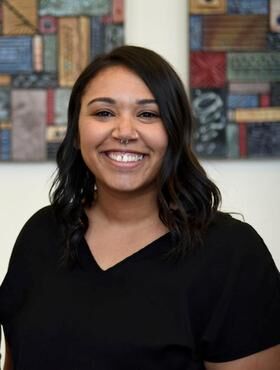Cheltzie Miller-Bailey presents ISCORE session on professionalism perpetuating prejudice

In her ISCORE presentation, Miller-Bailey discussed how professionalism enables prejudice against minority communities.
March 5, 2021
Cheltzie Miller-Bailey, assistant director of the Center for LGBTQIA+ Student Success, presented a session for Friday’s ISCORE on the concept of professionalism and how that concept is used as prejudice against people who identify as Black, Indigenous and people of color (BIPOC) and LGBTQIA+.
In a preview of the presentation, the Whova website stated, “In this session, attendees will begin to challenge their individual views of professionalism, will recognize why unlearning traditional professionalism is imperative for the liberation of marginalized groups, and will learn methods to change their language and practices to create more inclusive and diverse environments for students and employees.”
Miller-Bailey started her presentation by giving her background as a queer, Black and biracial cisgender woman and grew up in poverty. She currently has a master’s degree and is working in higher education.
She discussed how presenting in the professional manner that is standard in the United States made her uncomfortable and affected her individualism and ability to portray her identity.
She said her septum piercing means a lot to her, as well as her tattoos. She said she wanted to emphasize that there is not a correct way to look or be queer, but it’s important to feel authentic to yourself.
“When I’m able to feel more like myself, I’m better able to exist and operate in the environment I occupy,” Miller-Bailey said. “What professionalism tells me is that the most respectable way for me to look and operate is in […] a nice blouse, well-done hair, makeup, a kind smile. That’s what is going to make me more successful and allow me to do my job better.”
Miller-Bailey said professionalism standards are how white supremacy is perpetuated in a seemingly minute way and contributes to oppressive systems beyond blatant physical violence.
She said white supremacy insinuates white people and those of European descent are superior and favors people with wealth and uplifts profit-based systems.
“In the basis of our talk specifically, white supremacy assumes that age equates to knowledge, value and respect, so that would be ageism,” Miller-Bailey said. “It expects all individuals to accomplish tasks with the same resources, that’s ableism. And it assigns men and masculinity a high-level value.”
She also said written dress codes are often classist, ableist and sexist, among others. By identifying how men and women should dress professionally, a person is put into a binary box. She also touched on the unspoken rules, such as language, timeliness, work style, hierarchical structures and how personal identity is discouraged in the workplace.
“You see this a lot when people discourage visible tattoos or piercings to newer or younger professionals,” she said. “When we insinuate that tamed or polished hair is more refined or more appropriate in the workplace or even encouraging women to wear makeup.”
She also touched on how women of various sizes have different clothing standards, which perpetuates sizeism, as well as neutral colors being associated with intelligence.
“Following these dress codes is in no way a measure of anybody’s capability in the workplace,” Miller-Bailey said. “But if we don’t actually follow these dress codes, it measures our worth or our value in professional settings. And then our level of professionalism comes into question, even though our skill level and confidence have never faltered.”
She also considered other cultures’ standards for professionalism by asking the attendees if a person wearing a sari in the workplace would be considered unprofessional in America. If the answer for that may be yes, that is how it can be determined that professionalism is rooted in white supremacy.
“Objectively these don’t seem bad. For lack of a better term, we could assume good intent, but they are really damaging to marginalized folks because they are being characterized by norms and standards without having been proactively chosen to fit into that group,” she said.






